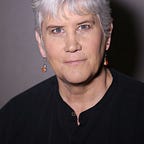Celtic Highlands Scots Peace Poetry from Year of The Poet (Vol 59)
Featured in The Year of the Poet November, 2018 Volume 59.
Scottish Men of Peace
The fairies of the Scottish Highlands
politely spoken of as the “Daoine Síth”
“Men of Peace”
wander through mythology
healing the world with magic
The “aos sí” or the older form “aes sídhe”
Irish for a supernatural race
fairies and elves
weave our way into Scottish mythology
spelled “sìth” wishing peace for mankind
W. B. Yeats refers to “aos sí”
simply as “the sídhe”
we live underground in fairy mounds
across the western sea
an invisible world
coexists with the world of humans
This world described
in the Lebor Gabála Érenn
a parallel universe finds the “aos sí” walking
among the living
the ancestors
the spirits of nature
of goddesses and gods
Always in peace “sìth” in Scottish Gaelic
“sìoth” in the dialect of Ulster and Northern Ireland
where people and fairies alike wish
for “sìoth on irth”
Peace in Seven Celtic Nations
In the Ancient Celtic of Cornwall
“hedh” is peace and tranquility
feasible easy and free from difficulty
as if in Kernow spoken in Cornwall
life is doable only if there is peace
said also “cres” or “kres”
“yn clôr” or “yn cosel” or “drê gosoleth”
peaceably in this descendant
of an Ancient British language
before English came to dominate
“Síth” or “síthe” or “sod” peace
“síocháin” the way of peace
in Gaeilge or Irish Gaelic
words in Ireland or Eire
“sítheach” peaceful and harmonious
“sítheach sóch” peaceful and comfortable
while “go sítheach grách” is harmony and love
peace begetting harmony comfort and ultimately love
“Sìth” peace in Scottish Gaelic
also called Alba the dialect of Scotland
“peace” in English
and “fois” means relaxation tranquility
ease repose respite
a loan word from Scottish
in Nova Scotia
Canada’s New Scotland
where this smallest of provinces
includes Cape Breton and 3,800 coastal islands
Far across the sea on the Isle of Mann
“shee” is the way peace said
in Gaelg or Manx Gaelic
the native language of this island
called Ellan Vannin in the Irish Sea
between Britain and Ireland
where we speak a Gaelic language
related to Irish or Gaeilge
and Scots Gaelic or Gàidhlig
spelled closer to English style
“Eaz” or “aez” is feasible
easy and free from difficulty in Amoric
or the Breton of French Brittany
where we spell peace many ways
“peoc’h” “pèc’h” “peoh” “peuc’h”
or “diskuizh” in France’s northwestern most region
where the pink granite coast is famed
for unusual blush-hued sand and rocks
known for an abundance of prehistoric “menhirs”
Harkening back to the Ancient Celtic of Cornwall
peace in this land is said “heddwch” or “hawdh” or “hedh”
in Welsh “héz” means that which glides onward
peace calm tranquility
as if peace is a lubricant that makes people move
towards each other and closer to “thawelwch”
another way of peace and quiet
in this language called Cymraeg
spoken in Wales or Cymru
“Koňiben” is a Traveler’s word for peace and quiet
in Welsh Romani also called Kååle
influenced by languages far flung
as Hindustani and the Celtic Welsh
a language of the Traveler people in Wales
“dootchiparen” is peace or “piratchi”
in Angloromani or British Isles Romani
as words of peace caravan across the lands and seas
Long ago to Galicia in northwest Spain
today considered the seventh of the original Celtic Nations
influenced by Spanish and Portuguese
in Galician we say “paz”
wishing for peace in the Celtic world and beyond
Brio Celtic Power
“Brio” a word in Galician
means might or power
showing Latin and Celtic influences in Spain
“Brio” power and might in Italian
comes from the Catalan or Old Occitan “briu” wild
from Celtic “brigos”
a cognate of Occitan “briu”
Old French “brif” means finesse or style
akin to Old Irish “bríg” or power
and the Welsh “bri” prestige and authority
or the Breton “bri” respect
So it seems power and respect
go together with a wild style
unique and prestigious
yet rooted in history and forward looking
To what this Galician community
we build with our power and might
the kind of peace or “paz”
we support
Can we write in Celtic stone “kalyāwo”
and move “callao” Galician boulders or pebbles
are there obstacles to peace
written in “kalyāwo”
are they as big as a boulder
is it just perspective
they are small like a pebble
descended from stones
and strength
Where will we find the path to “paz”
the Galician “camiño”
the way or path from Vulgar Latin “cammīnus”
and Proto-Celtic “kanxsman”
same as or a cognate of Italian “cammino”
French “chemin”
Spanish “camino”
Catalan “camí”
Occitan “camin”
akin to the Old Irish “céimm”
Cornish and Breton “kamm” or step
We look for peace
helping neighbors along the way
no matter what we say
the words we use just remnants
of the history we share
the power of a helping hand
needs no translation
Originally published in The Year of The Poet (Vol 59) at http://www.innerchildpress.com/the-year-of-the-poet.php on November 1, 2018.
